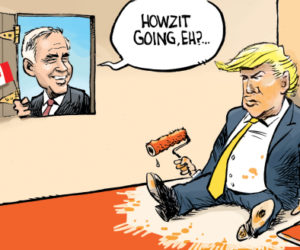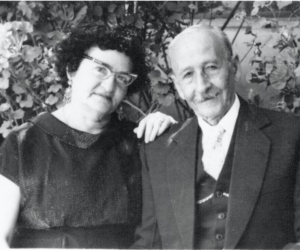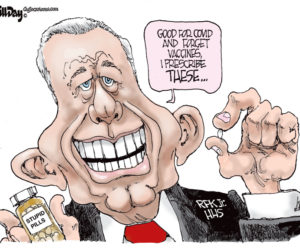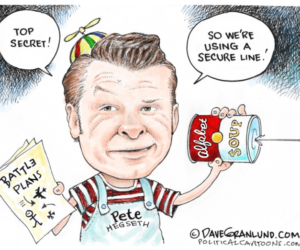
Is political tribalism killing liberalism?
Most of the talk about political tribalism centers on the right and far right but are we seeing more manifestations of liberal tribalism as well? Michael Carpenter, writing in Foreign Affairs, examines why we are a “succumbing to the politics of tribalism.” His focus isn’t just on the United States but on global trends.
It’s worth looking at this piece in some detail and offering a few quick thoughts. One of his points is one that I’ve noted and have been concerned about for years: the growth and quasi institutionalization of political echo chambers.
He starts out with this:
“In an interview with the Financial Times last year, Russian President Vladimir Putin glibly proclaimed Western liberalism to be ‘obsolete.’ Self-serving as his remark may have been, Putin was tapping into a global sentiment. Illiberal populism is on the rise on virtually every continent, even in places that not long ago seemed headed the opposite way. The Hindu nationalist agenda of Indian Prime Minister Narendra Modi has fanned anti-Muslim sentiment in the world’s most populous democracy. In Brazil, murders of LGBTQ people have risen sharply under far-right President Jair Bolsonaro. In Europe, far-right parties long confined to the fringes of the political spectrum have recently entered ruling coalitions in Austria, Estonia, and Italy. Anti-Semitism is growing in many societies, and anti-immigrant attacks have shaken democratic communities from Christchurch, New Zealand, to Halle, Germany.
Three trends are fueling the rise of illiberalism in modern democracies. Social media networks are gradually displacing civil society networks, democratic societies have grown more politically polarized, and the middle classes have been hollowed out by growing socioeconomic insecurity. Taken together, these developments have generated a form of identity politics that undermines liberal institutions even in supposedly “consolidated” democracies.”
And:
“The key to liberalism’s success is not whether citizens cling to supposedly “atavistic” ethnic and religious identities or embrace cosmopolitanism and humanism. The real question is how they order and reconcile their differing ethnic, racial, religious, or partisan identities—and on this front, many democratic systems are failing today.”
Then he gets to the section on political echo chamber:
“Alexis de Tocqueville’s famous analysis of nineteenth-century American civil society holds true today: citizens who engage in overlapping civil society networks—nongovernmental organizations, volunteer associations, interest groups, and the like—tend to develop identities that cut across social cleavages, which in turn fosters tolerance, civility, and trust. People who lack access to such networks, including those who live in remote, rural areas, are more likely to embrace illiberalism. The political scientist Jonathan Rodden has shown that the single most powerful predictor of support for illiberal populism in the United States and Europe today is low population density.”
Indeed, this is the same rural electorate that the Democrats have had so much trouble winning over in recent years.
“Social media has much the same isolating effect. The design of many social media platforms isolates users into peer-group bubbles, where they affiliate only with the like-minded and those who share their core identities, creating a powerful feedback loop that undermines the diffraction of identities through civil society. Many surveys have linked social media use to feelings of withdrawal and loneliness. And when social media users come across different opinions or identities online, they often react with hostility. (As one expert put it, “trolling” has now become “the mainstream form of political discourse.”) The point is not that citizens today are less civically engaged than in the past but that their activism, especially through social media, is creating an “uncivil society” that is cruder, more partisan, and more antagonistic. Identities become stacked and rigid, rather than diffuse and overlapping, leaving people more receptive to illiberal ideas.”
That does nail it.
Twitter, which once seemed to be a social media platform that could lead to real discussion, frequently becomes the epitome of that. People will unfollow people who stray from their own views. It also creates the need for people to exaggerate, demonize, name call, and cherry pick info so they can get and hold onto like-minded followers.
This is all part of 21st century American political culture. Serious discussion is hard to find. What we see in U.S. political culture now is:
(1)The politics of reaffirmation. People want to go to websites, twitter feeds, radio talk shows, cable opinion shows etc where they already agree with the websites, twitter feeds, radio talk shows, cable opinion shows in advance.
(2)The politics of demonization. It’s far easier to demonize, name call, and swear at other’s on social media or political figures than actually discuss or point out policies.
(3) The politics of rage, outrage, overblown rage and overblown outrage. And,yes, kindly spare me the “false equivalency” bilge. It is on both sides.
“The consolidation of the like-minded online mirrors a broader trend among democratic publics: growing polarization, or the fact that communities are increasingly segregated into antagonistic camps with almost no common ground. Regardless of whether polarization is based on racial, partisan, ethnic, religious, or some other type of identity, its net effect is to segregate diverse identities into a handful of opposing camps and to encourage fierce tribalism among them. As the journalist Ezra Klein has written in his analysis of polarization in the United States, this “merging of the identities means when you activate one you often activate all, and each time they’re activated, they strengthen.”
He points to Poland and then writes:
“Illiberal demagogues all over the world exploit such divisions with great success. For this reason, they have fared best in societies that are highly polarized, such as the United States, Brazil, Poland, Hungary, Turkey, Georgia, and the Philippines, to name only a few. And when autocracies weaponize social media against liberal democracies, as Russia has done in the United States, they often promote seemingly contradictory messages—some in favor of LGBTQ rights and others against, for example. The goal is not to denigrate a particular minority but rather to accelerate polarization and the growth of uncivil society.”
He points to some measures that could combat some of these problems but stresses:
(Fighting> back will require strong leadership capable of mending social divisions and reforming broken political and economic institutions. In the United States, that includes ending the practice of gerrymandering, which contributes to political polarization, standing up for bipartisanship, supporting a more expansive social safety net for citizens at risk, and funding research into the radicalizing effects of social media. Above all, leaders should try to foster an ethos of service to the nation rather than to partisan interests..”
The problem here is that it’s not in the interests of those who want to use divide and rule to do any of those things. What he suggests can be done but it’ll require a battle every inch and step of the way. Are Americans — or those living in other democracies — up to it? Or are the new normals the permanent normals. Is the 21st century the age of the belief-reaffirming echo chambers? Or is serious, spirited discussion still able to engage — and change — minds?
PS: I highly recommend Foreign Affairs which is a political polemics free, non-partisan serious website. It’s well worth visiting — or the cost of a subscription. Twitter or cable TV political “discussion” it ain’t.
Go HERE to find more articles on political echo chambers.
Joe Gandelman is a former fulltime journalist who freelanced in India, Spain, Bangladesh and Cypress writing for publications such as the Christian Science Monitor and Newsweek. He also did radio reports from Madrid for NPR’s All Things Considered. He has worked on two U.S. newspapers and quit the news biz in 1990 to go into entertainment. He also has written for The Week and several online publications, did a column for Cagle Cartoons Syndicate and has appeared on CNN.
















